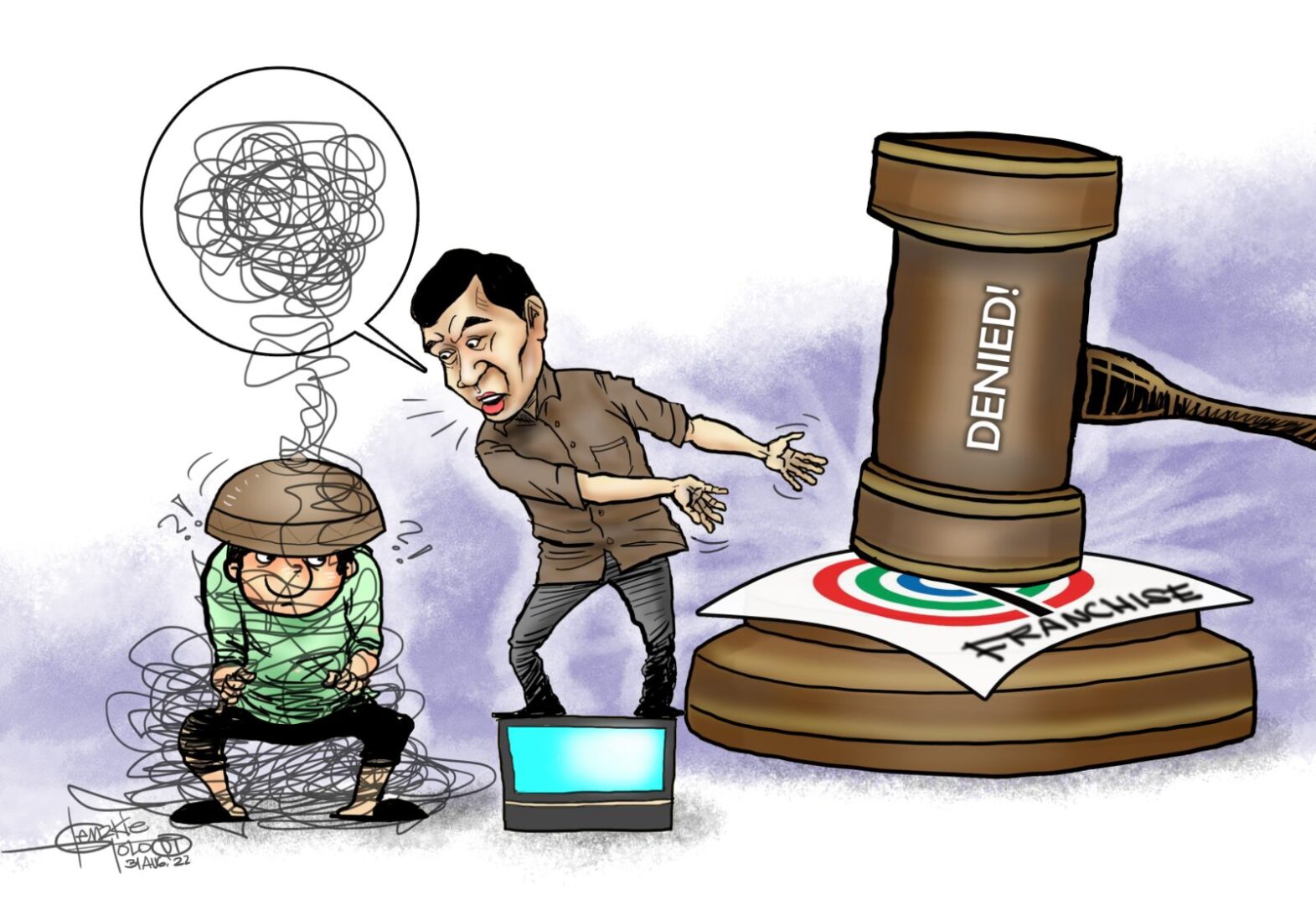One who makes public statements about a matter of public interest is fair game for press criticism. This is particularly true when the individual who makes the public statements likes to pass himself off as a legal expert when he isn’t one to begin with, and when his “legal opinions” have no basis in law.
One example is Professor Danilo Arao of the University of the Philippines in Diliman, particularly the Department of Journalism of the UP College of Mass Communication.
Arao, who is not a lawyer, enjoys being interviewed on television. It’s obvious from the way he talks whenever he knows that a TV or online camera is focused on him.
Despite his purported expertise in journalism, he speaks on TV in a disorganized mixture of English and Pilipino.
He often begins his public statements with “Mapagpalayang araw sa ating lahat,” or words to that effect, which sound like a baseless insinuation that contemporary Filipinos do not live in a democratic country.
Arao also behaves like a propagandist of the ABS-CBN broadasting network.
The legislative franchise of ABS-CBN expired in May 2020. Because the law provides that a broadcast network may not operate in the Philipines without a franchise, ABS-CBN filed an application in Congress for the issuance of a new franchise. In July 2020, Congress denied the network’s application.
Arao claimed that the refusal of Congress to issue a new franchise to ABS-CBN was meant to create a “chilling effect” on the media. In other words, Arao suggested that the government was determined to silence the media, and what happened to ABS-CBN is a warning.
Soon thereafter, what Arao said proved to be false and untenable.
ABC-CBN filed a petition in the Supreme Court by which it questioned the refusal of Congress to issue a new franchise to the network. The Supreme Court eventually dismissed the petition and held that the refusal of Congress to issue a new franchise to ABS-CBN is a discretionary power of Congress, and does not amount to censorship or an abridgment of press freedom.
Undoubtedly, the ruling of the Supreme Court proved that Arao’s remarks have no basis in both fact and in law.
Recently, the Securities and Exchange Commission upheld its 2018 finding that Rappler Inc., an online news site operated by Maria Ressa, violated the constitutional prohibition against alien ownership and management of mass media in the Philippines. As a consequence, the SEC revoked the registration of Rappler Inc. as a corporation.
As expected, Arao called for the abolition of the SEC because it was meddling in the operations of a mass medium like Rappler.
In a past commentary, this newspaper scored Arao for that misleading statement.
If a business entity wants to operate in the Philippines as a corporation, then it must abide by the Constitution and the country’s laws. The SEC is authorized by law to revoke the corporate registration of any business entity that violates the Constitution and the law.
Rappler is under no obligation to operate as a corporation, and so if it wants to operate as a corporation, it must obey the law governing corporations.
The fact that Rappler is an online news outlet is beside the point. Like every other business entity, media companies are not exempted from compliance with the Constitution and the laws.
In 2020, the Regional Trial Court of Manila convicted Ressa of the crime of cyber libel and sentenced her to imprisonment. Last July, the Court of Appeals not only affirmed Ressa’s conviction, but increased the penalty imposed on Ressa.
As expected anew, Arao assailed Ressa’s conviction. However, he did not explain why his opinion as a non-lawyer should prevail over the legal wisdom of a trial court judge and three justices of the Court of Appeals.
In sum, Arao’s baseless, sweeping and misleading public statements are the best reasons why the public and the media should ignore him.
